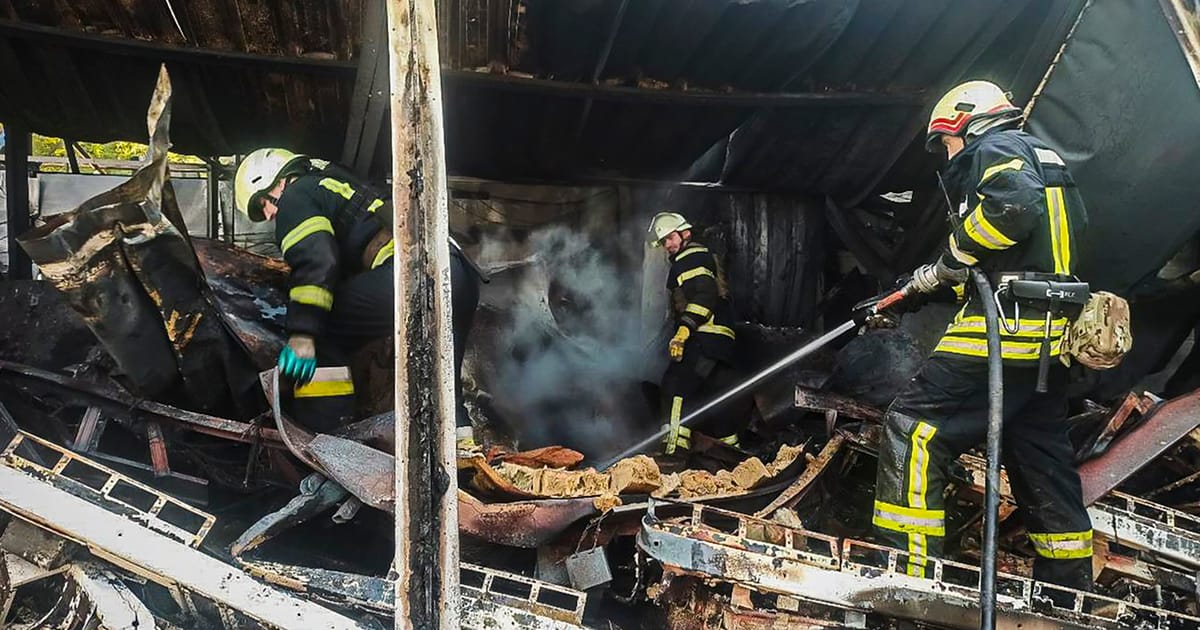

In a world where the rhythm of daily life can often seem fraught with uncertainty, it is essential to approach the unfolding events with a thoughtful and measured perspective. Recent developments in eastern Europe and the Middle East remind us of this necessity.
In the Kharkiv region of Ukraine, a vital logistics hub was struck with a volley of drone attacks, underscoring the continuing conflict that has touched the lives of countless individuals. This incident resulted in casualties that included the injury of two children, highlighting the indiscriminate nature of modern warfare. Tragically, a mechanic engaged in his daily work at a railway station was also killed, bringing a somber reminder of the civilian toll in such conflicts.
As the conflict in Ukraine continues to unfold, it serves as a somber reminder of the complex geopolitical dynamics at play. The eastern European region, rich in culture and history, faces ongoing challenges as it navigates through a landscape marked by discord. Yet, within this complexity, resilient communities continue to carry on, adapting and rebuilding, informed by a spirit of endurance and hope.
Turning to the Middle East, a confluence of tension and decision-making is evident in the Gaza-Israel conflict. Israeli Prime Minister Benjamin Netanyahu is at a critical juncture as he deliberates over potential military escalations within the Gaza Strip. Reports indicate that a decision may be on the horizon to expand military operations, possibly extending towards a comprehensive occupation campaign. Such measures come amidst stalled ceasefire negotiations which have prolonged uncertainty in the region.
This potential intensification of military action has sparked debates within the Israeli government, with a planned security cabinet meeting being postponed. It reflects the nuanced and often divisive nature of defense policy within nations under pressure. On one side, there is an insistence on diminishing the influence of Hamas; on the other, consideration of the broader humanitarian implications and long-term regional stability remains paramount.
The implications of possible escalations in Gaza carry profound consequences for both local populations and international relations. Past experiences teach us the importance of pursuing peace as a priority, acknowledging the potential for dialogue and negotiation even amid heightened tension. As such, monitoring developments with a lens of diplomacy and compassion becomes an integral part of global engagement with such crises.
In times of conflict, it is essential to remember the strength in unity, compassion, and dialogue. Although the paths toward resolution may differ, the shared human call for peace is a thread that connects communities across the globe. As observers and participants in a global society, fostering an environment that encourages empathy and understanding can guide us through uncertainty.
The world stands as a mosaic of diverse perspectives, histories, and ambitions. The events in Kharkiv and Gaza are woven into this broader narrative, reminding us of the interconnectedness of our experiences. As the story continues to unfold, embracing a mindset of patience, wisdom, and intentional action can illuminate the path forward, giving rise to solutions forged in the spirit of collaboration and peace.
In conclusion, while the headlines may bear the weight of conflict and change, within each challenge lies the potential for transformation and growth. By staying informed with care and approaching global issues with a heart open to understanding, we contribute to a tapestry of resilience and hope for a peaceful future.
Source: {link}
